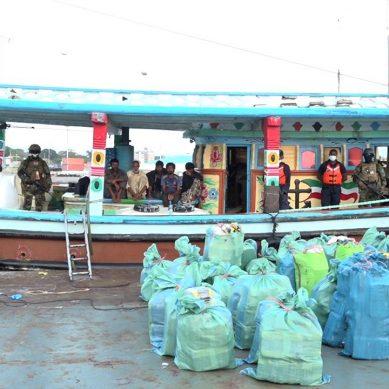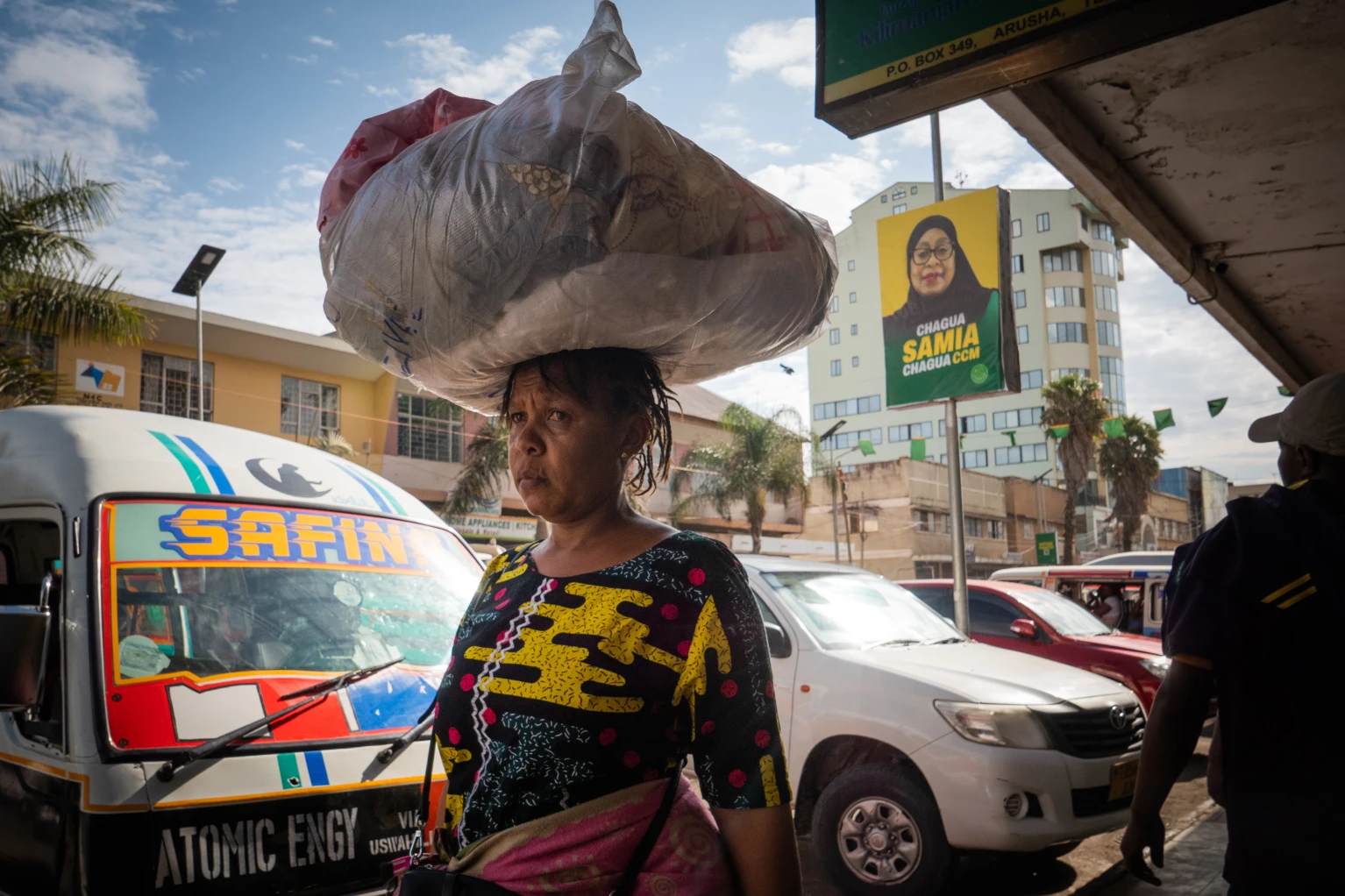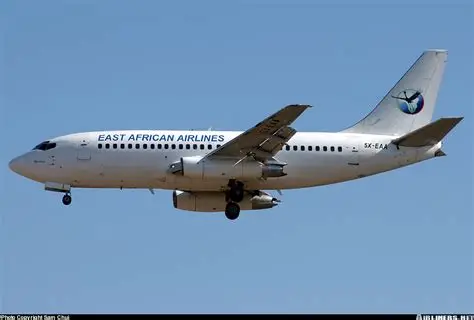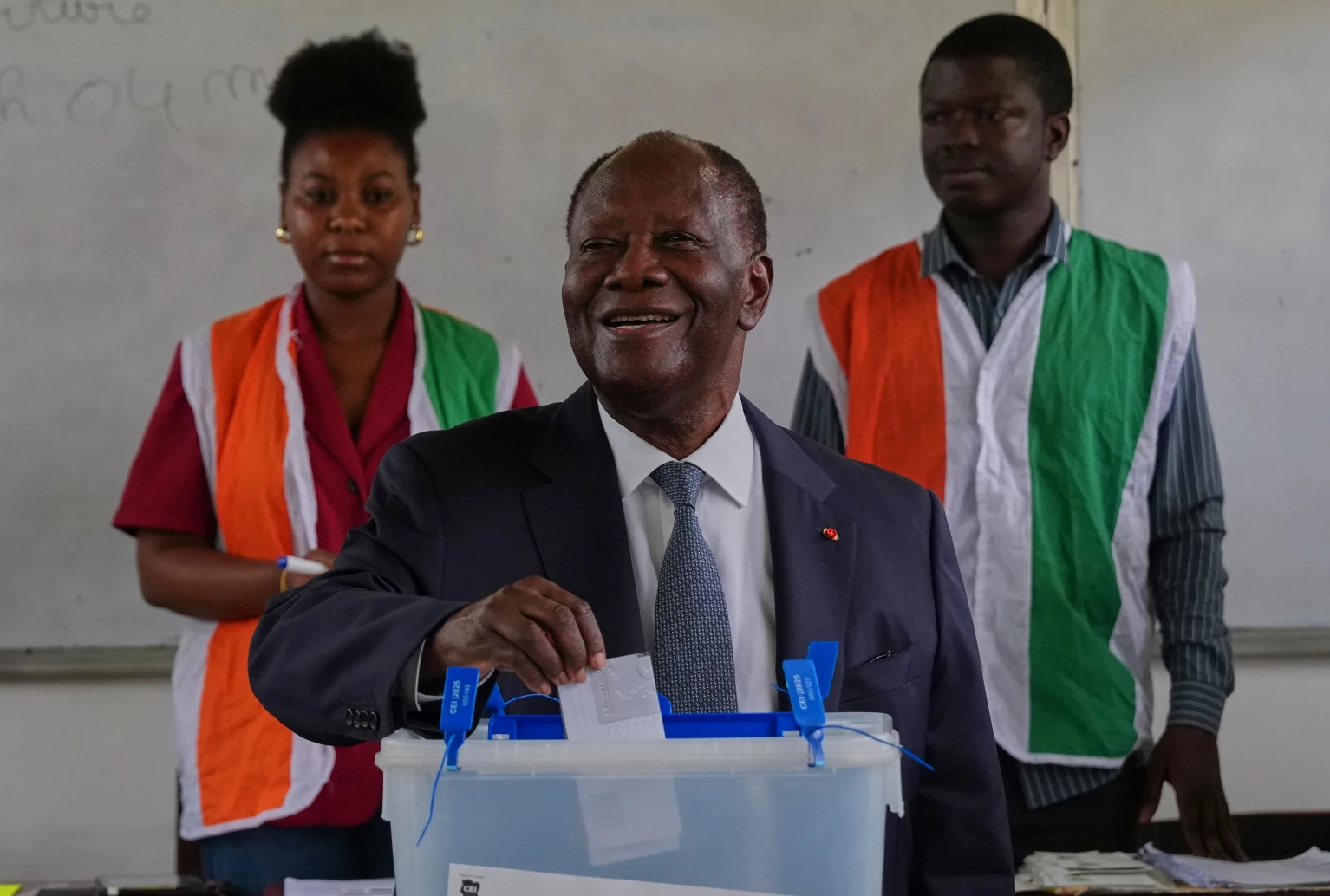
Munera Mokgoko was just three when apartheid fell. She can barely remember, much less fathom, the swell of hope that accompanied Black liberation three decades ago, shaped by Nelson Mandela’s vision of social equality and pan-African solidarity.
“South Africa doesn’t have any ubuntu,” the 33-year-old said, using a Zulu word meaning humanity, ahead of an election in which the ruling African National Congress (ANC) is pledging to crack down on undocumented migrants from the rest of the continent.
“It’s like we don’t know how to welcome people.”
Mokgoko’s Tanzanian husband is among many African migrants who have flocked here since the end of white minority rule and met with the colder side of the “Rainbow Nation”, a name used by Mandela and others in the 1990s to describe South Africa’s aspirations to be a beacon of multicultural harmony.
Public resentment at immigration has become a hot issue in the run-up to the May 29 vote. It’s the first national election in which most people in South Africa – which has a median age of about 28 – have no memory of decades of apartheid, the fight for freedom or the ANC liberation movement’s rise to power in 1994.
Idi Rajebo, Mokgoko’s 34-year-old husband, and thousands of other hopefuls fleeing rural penury in much poorer nations like Tanzania and Malawi have packed themselves into decrepit minibuses, footslogged through bush and bribed border guards to reach Johannesburg, the “City of Gold”.
He and dozens of others ended up crammed into a derelict apartment tower that was being taken over – or “hijacked” – by criminals, where toilets overflowed and drug addicts drooped over stairwells.
“It wasn’t nice,” said Isaac Simon, 39, a Tanzanian friend of Rajebo’s who ran a kitchen on the ground floor. “We all had the same idea: make some money and get out.”
Dozens didn’t get the chance. Nine months ago, the Usindiso apartment block burst into flames, killing 77 people – mostly migrants – and leaving hundreds homeless.
Reuters is the first news outlet to comprehensively piece together the stories of many of the survivors, before and after the Usindiso tragedy. This article is based on interviews with about 50 people, including 19 migrant victims, government officials and lawyers representing survivors in a public inquiry into the causes of the blaze, plus hundreds of pages of documents submitted as evidence to the probe, much of it not publicly available.
The accounts turn a rare spotlight on the dire conditions endured by many Africans who arrive here searching for of a better life in the continent’s most advanced economy, and the hostility they say they’ve encountered from South African authorities as well as bands of vigilantes who blame foreigners for taking jobs and services away from local people.
The public inquiry concluded this month that the fire was caused by a South African man who was high on crystal meth when he strangled another local to death and set the body alight with petrol to conceal the evidence of the murder.
The probe also blamed neglect by local authorities for allowing the building to become a hazardous zone, rife with guns, murder, drugs and combustible trash, findings that led to the provincial premier pledging to swiftly implement the report’s recommendations.
For those who survived the blaze, the ordeal continues. Seven of the 19 migrants interviewed are sleeping on sidewalks or in makeshift tents. Most of the rest said they were living in even more overcrowded and dirty accommodation than the gutted block they escaped, while four have been deported for not having valid immigration papers.
In total, 25 survivors of the fire have been deported, according to lawyers representing them at the public inquiry into the fire and as legal counsel during their incarceration.
This month’s election could mark the end of an era for post-liberation South Africa, with the long-dominant ANC expected to lose its parliamentary majority for the first time, abandoned by voters incensed at a litany of national woes including a dearth of decent housing, frequent power cuts, water shortages, poor schools, rampant joblessness and high crime.
Most major parties have put forward plans to crack down harder on illegal migrants as they vie for votes in a tight race. Last month, the government published proposals in its official gazette to scale back its commitments to, or withdraw from, the United Nations refugees’ convention and related treaties, to “deter economic migrants who come to South Africa disguising as asylum seekers”, a move it said would free its hand in promptly rejecting asylum claims it deemed bogus.
The white paper provoked an outcry from local human rights groups and three UN agencies – the UNHCR refugee body, IOM migration organisation and UNICEF children’s fund – said the withdrawal would set a negative precedent and could lead to children born in South Africa becoming stateless.
The proposals also provide a jarring counterpoint to the message conveyed by former ANC leader Mandela, who declared Africans were “one people with a common destiny” after becoming the country’s first democratically elected president.
“When the history of our struggle is written, it will tell a glorious tale of African solidarity,” Mandela told fellow leaders in June 1994. “Africa shed her blood … so that all her children could be free. She gave of her limited wealth and resources so that all of Africa should be liberated.”
The ANC signed up to the refugee treaties unconditionally in 1995 and 1996. It wasn’t among the many signatories that secured opt-outs from certain requirements, such as giving refugees the same welfare benefits as citizens. In a 1997 speech to mark Africa Refugee Day, Mandela said the answer to managing large refugee flows, often driven by conflict, was to emphasise people’s political and civil rights and for “all of us on the African continent to unite”.
Home Affairs Minister Aaron Motsoaledi, who put forward the white paper, said in an interview that migrants as a whole were proving a heavy burden on South Africa’s resources, citing one hospital, in the northeastern town of Musina, where he said Zimbabweans made up of 70 per cent of maternity ward patients.
Reuters couldn’t independently verify those maternity ward figures. Calls to the Musina hospital went unanswered.
Motsoaledi also said undocumented migrants were allowing employers to undercut the minimum wage, and dismissed any suggestion of xenophobia.
“Every country has got the right to safeguard its interests,” he said. “Pan-Africanism does not mean entering each other’s country illegally.”
The government stance is rejected by Andy Chinnah, a human rights activist who has spent the last nine months helping victims of the fire by providing them with meals and helping organise their legal representation for the public inquiry, which examined the causes of the blaze and who should be held responsible for the tragedy.
Chinnah said the treatment of African migrants reminded him of the apartheid system, but now it was Black people from other countries who were “outsiders.” Political moves to curb migrant rights amount to a betrayal of Mandela’s legacy, he said.
“He wanted one Africa. All the other presidents from the other African countries supported him and the liberation movement to get the freedom that we enjoy today,” Chinnah said.
“We didn’t fight for just the freedom of us in South Africa. We fought for a free Africa. We fought against colonialism.”
The number of immigrants living legally in South Africa has almost trebled to 2.4 million in 2022 – more than 80 per cent of them from sub-Saharan Africa – from 835,000 in 1996, according to the national statistics office. It said migrants now made up about 4 per cent of the population, with Zimbabwe, Mozambique, Lesotho and Malawi the leading countries of origin. In the United States, another country where immigration is a top issue this election year, foreign-born people account for almost 14 per cent of the populace, census data shows.
The official South African figures don’t include undocumented migrants, for which the government white paper says there are no reliable figures. It says immigration authorities deport 15,000 to 20,000 undocumented migrants a year and that the number is rising.
Migrants from sub-Saharan Africa, where much of the population struggles to eke out even a meagre living from farming, are often willing to take great risks to reach South Africa’s more industrialised economy. They pursue work as child carers, waiters, security guards, artisanal miners and shopkeepers, to name a few occupations.
Of the 19 migrant survivors interviewed by Reuters, nine including Rajebo said they were on valid visas but had lost the documents along with most of their belongings in the fire. The other 10 said they didn’t have valid immigration papers. Reuters couldn’t independently verify their accounts.
There is widespread public frustration with undocumented migrants in South Africa, particularly among young people, according to a survey of 1,000 18-to-24-year-olds published this month by the Ichikowitz Family Foundation, a Johannesburg-based rights and conservation advocacy group.
About 88 per cent of respondents said they believed illegal migrants were taking jobs and resources away from South Africans, 86 per cent said they were driving up crime, and 85 per cent thought they should be forcibly removed.
Few movements harness this bubbling anger more thoroughly than Operation Dudula – meaning “force out” in Zulu – a group founded in 2021 with a stated mission to rid South Africa of illegal migrants, whom they blame for many social and economic ills.
The loose-knit street movement has thousands of followers across the country. It has become well known for staging demonstrations against illegal migrant workers, making threats against migrants and sometimes carrying out attacks on foreign-owned businesses.
Operation Dudula registered as a political party late last year, but last month the electoral commission excluded it from the election for missing the deadline for submitting its list of candidates.
About half of the migrant survivors of the August 31 Johannesburg fire interviewed said they had been threatened and intimidated by members of Operation Dudula, both before and after the disaster.
- A Reuters report








